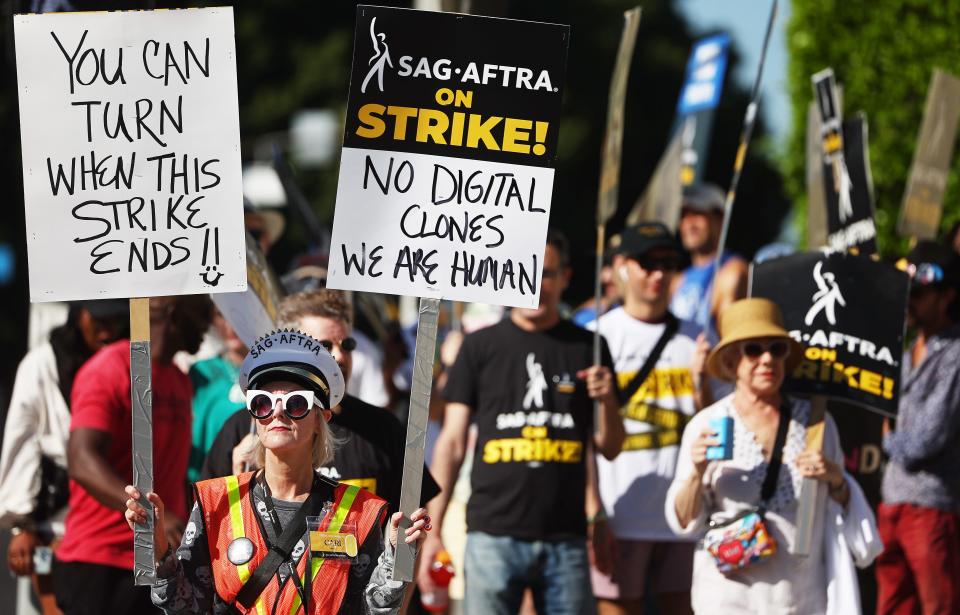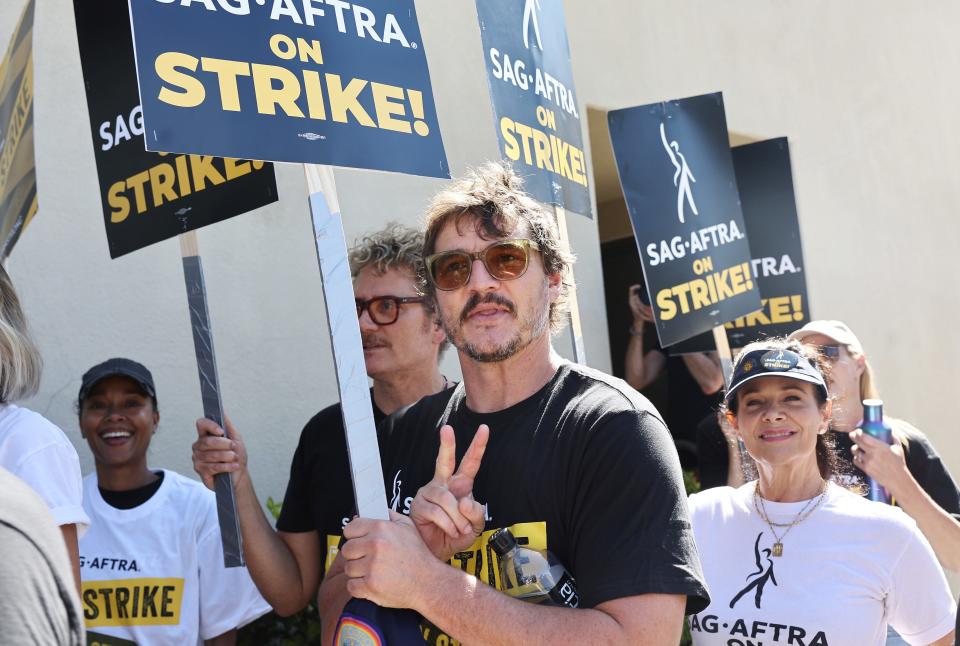Inside the actors' union tentative strike agreement: Pay, AI, intimacy coordinators, more
SAG-AFTRA, the union representing 160,000 actors and media professionals, has released the details of the tentative agreement reached with Hollywood studios and streaming services earlier this month, which ended a historic 118-day strike.
The union on Friday shared a draft of the memorandum of agreement as the deadline for members to vote on its ratification approaches on Dec. 5. In a news release, the union's national executive director and chief negotiator, Duncan Crabtree-Ireland, touted that the proposed TV and theatrical contracts establish "lengthy and detailed AI guardrails."
"These gains are only possible because of your sacrifice, solidarity and tenacity over the 118 days of the strike and are assured if you vote to ratify the agreement," Crabtree-Ireland said in a statement.
On July 14, SAG-AFTRA members joined the Writers Guild of America on the picket lines in dual strikes that brought much of Hollywood to a standstill. In September, after 148 days on strike, WGA leadership reached a deal with the Alliance of Motion Picture and Television Producers, which represents studios and streaming services.
SAG-AFTRA's contract addresses pay, artificial intelligence, hair and makeup

The 128-page draft of the new contracts with the AMPTP — whose term is Nov. 9, 2023, through June 30, 2026 — details various changes to how much union actors are paid.
Minimum salary rates agreed upon in 2020 will rise by 7% initially, then by an additional 4% on July 1, 2024. A year later, it will go up another 3.5% on July 1, 2025. The minimum daily rates will initially increase 11% before going up an additional 4% in 2024 and 3.5% the following year.
SAG-AFTRA also negotiated for a "success bonus" for performers involved in high-budget streaming programs.
Also, a section on artificial intelligence is introduced and includes stipulations on use of digital replicas of performers, synesthetic performers and generative AI. The terms specify when studios and production companies must seek consent to use such technology.
There is also a newly proposed section on hair and makeup that requires for performers to be offered opportunities to share their needs in regards to hair and makeup before a project begins. This should ensure actors work with professionals who are experienced in their specific hair textures and skin tones.
SAG-AFTRA President Fran Drescher: AI protection was nearly 'deal breaker' in actors strike
Studios and streaming services will share viewership numbers with SAG-AFTRA

Streaming services are notoriously cagey when it comes to transparency about their data. Under the proposed contracts, video services including Amazon Prime Video, Apple TV+, Disney+, Hulu, Max, Netflix, Paramount+ and Peacock will share information about viewership with a select few.
Within 90 days of the end of a quarter, services will be required to provide data on the total number of hours streamed for "high-budget" streaming programs. "A limited number of individuals whose access to the confidential viewership information is essential for the union’s use of this information" will be able to see this "particularly sensitive" data, capped at six people.
These people will also be subject to a "mutually agreed upon" confidentiality agreement.
With the strikes over, what's next? Here's when you can expect your shows and movies back
On-set sexual harassment prevention measures include intimacy coordinators, training
A new section regarding sexual harassment prevention details ways production companies can make performers and crews feel safer on set.
On set, studios and production companies will "use best efforts" to hire an intimacy coordinator for scenes involving nudity or sex acts, the document reads. They must also take any performers' requests for an intimacy coordinator under consideration, without retribution.
Also, studios will be expected to provide copies of its non-discrimination and anti-harassment policy within approximately a month of the contracts being ratified. Copies of the policy, as well as instructions for reporting violations of the policy, must be made available in production areas.
Harassment prevention training programs are recommended to cover "best practices when working on a scene requiring nudity or simulated sex, including training on handling scenes and situations of a 'triggering' nature in a trauma-informed manner."
'Let's go!' Hollywood celebrates end of actors' strike on red carpets and social media
This article originally appeared on USA TODAY: SAG-AFTRA reveals new proposed contracts with studios: See the details
